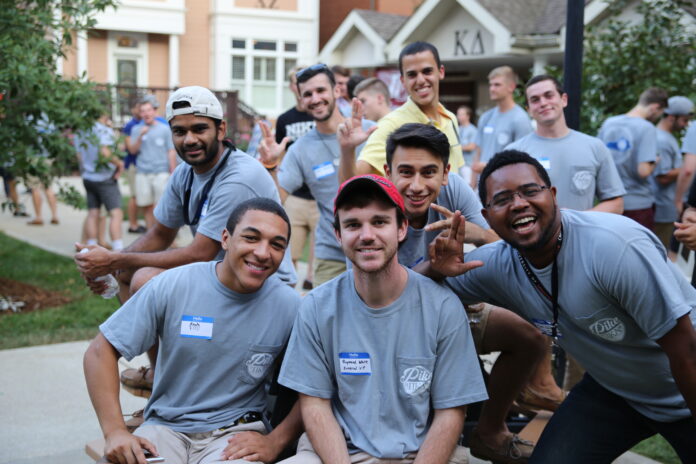Too many educational institutions today treat male students not as promising young adults with potential to grow, lead, and serve—but as liabilities to be managed. They are viewed through a lens of suspicion, seen as potential threats, or outmoded figures in an era eager to correct past injustices.
The result is a crisis we can no longer afford to ignore: young men are falling behind—academically, socially, psychologically, and spiritually.
As our nation’s colleges wrestle with how to support male students, it is critical to recognize that policy reforms alone won’t suffice. We need more than academic accommodations or awareness campaigns.
What’s required is a deeper renewal of moral formation and mentorship—one that draws from older wells of wisdom. For centuries, fraternal organizations like the Masons offered such guidance. As a Mason myself, whose journey began in graduate school, I’ve seen firsthand how these values-based brotherhoods can shape principled men. And I believe they still have a vital role to play today.
But the Masons are not alone. Across America, fraternal organizations—from the Knights of Columbus to Sigma Chi, from the Elks to religious men’s fellowships—once played a crucial civic role in forming men of integrity. These institutions offered multigenerational mentorship, rituals of responsibility, and a counterweight to the shallow individualism of modern culture. They taught that adulthood was not just a matter of age but of character. That manhood was earned through service, sacrifice, and solidarity—not status or performance.
After almost two decades of teaching college students, I see this crisis unfolding in real time.
Young men are disengaging from school, withdrawing from friendships, and struggling to find purpose. They are now less likely than women to enroll in or finish college, and far more likely to report feelings of alienation and hopelessness.
Many lack strong male role models—figures who can both challenge and guide them through critical transitions in life. Without those anchors, too many turn to the internet for answers, where too often they find toxic influencers and extremist ideologies instead of wisdom and responsibility.
Some institutions make matters worse by pathologizing masculinity itself—treating ambition, competitiveness, or stoicism not as traits to be refined, but as flaws to be eliminated. Others, while more well-meaning, simply lack a vision for male formation. They offer no rites of passage, no structured paths toward maturity, no real sense of what it means to grow into a man of integrity. Meanwhile, the young men most in need of challenge and structure find only confusion and neglect.
But it doesn’t have to be this way. Fraternal organizations offer a different model. They provide what universities increasingly struggle to: a moral framework, a multigenerational community, and a clear expectation that men live by their values. These are not performative affiliations or empty social clubs. They are institutions rooted in service, duty, humility, and care. In these spaces, mentorship is not a nice-to-have; it is central. Leadership is not assigned, but earned.




















